Food forests
We at Trees for All support the planting of various food forests in the Netherlands. In this we co-operate with Stichting Voedselbosbouw Nederland (Dutch Food Forestry Foundation) and local food forest farmers. Participants welcome!
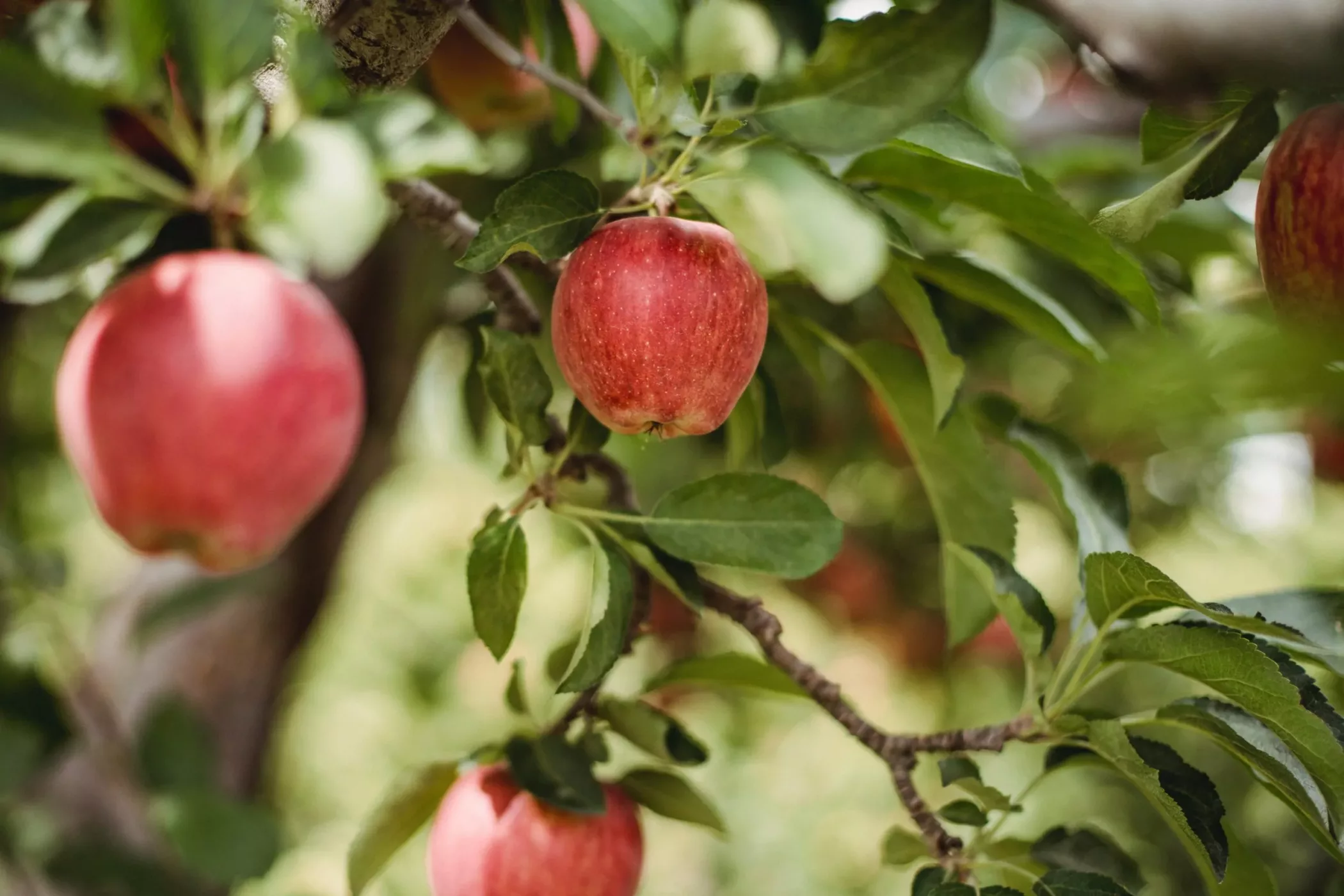
We at Trees for All support the planting of various food forests in the Netherlands. In this we co-operate with Stichting Voedselbosbouw Nederland (Dutch Food Forestry Foundation) and local food forest farmers. Participants welcome!
The composition of a food forest resembles that of a natural forest. In it can be found trees, shrubs and plants in several layers. Think of high nut trees and medium height hazels, which naturally flow into low berry bushes and ground covering creepers. Because of the difference in height, a modest area will house a great deal of biodiversity.
An example of the way in which a food forest is built up:
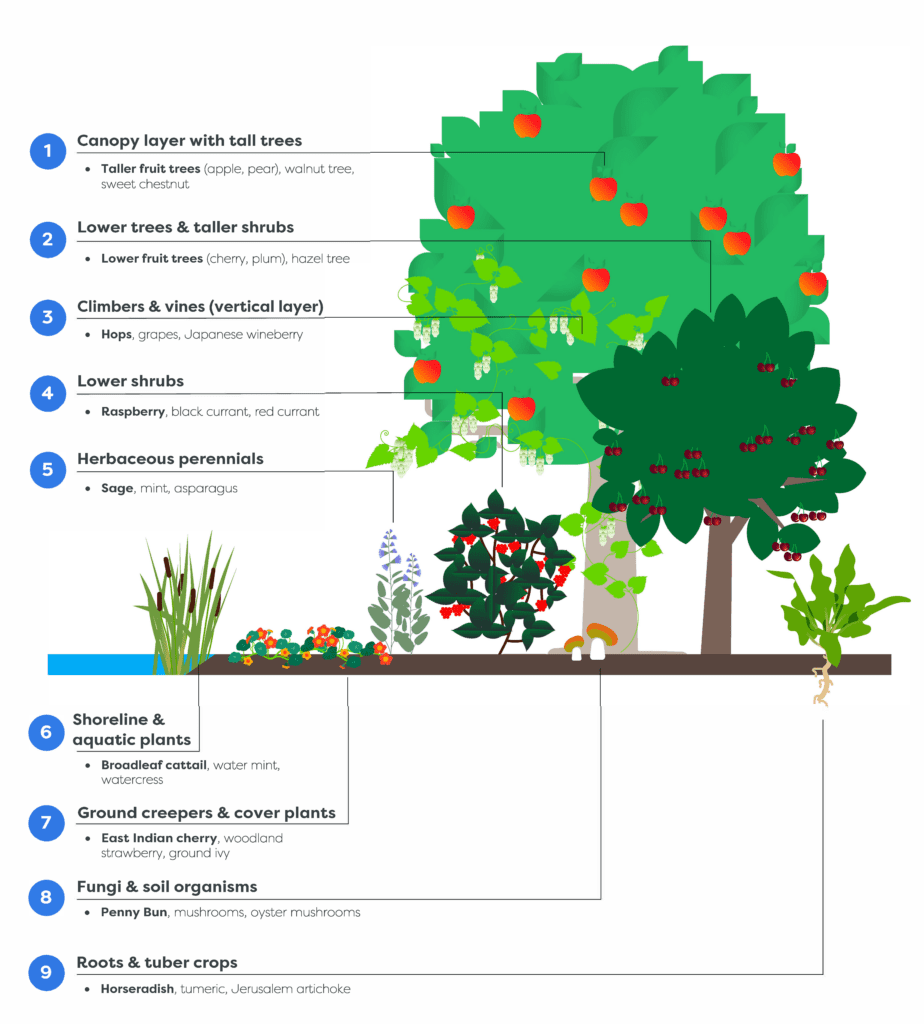
Wholesome food for a local market
More biodiversity
CO2 storage
Better condition of the soil
Contact between human and nature
Healthy, green living conditions
Food forests are a form of nature-inclusive farming. This means that farmers work within nature’s limits. For instance, pesticides and weed killers are not necessary. The various species of plant and animal within a food forest handle diseases and infestations in natural ways.
Furthermore, farmers leave the soil alone. They neither hoe, weed or plough, thus allowing healthy soil life to come into being. Eventually, a food forest will develop into a self-supporting ecosystem, in which nature does all the work. A sustainable and climate-friendly alternative to regular agriculture!
Thanks to our contributors we are able to support the planting of several food forests in the Netherlands. Would you like to plant a tree in one of our food forests?
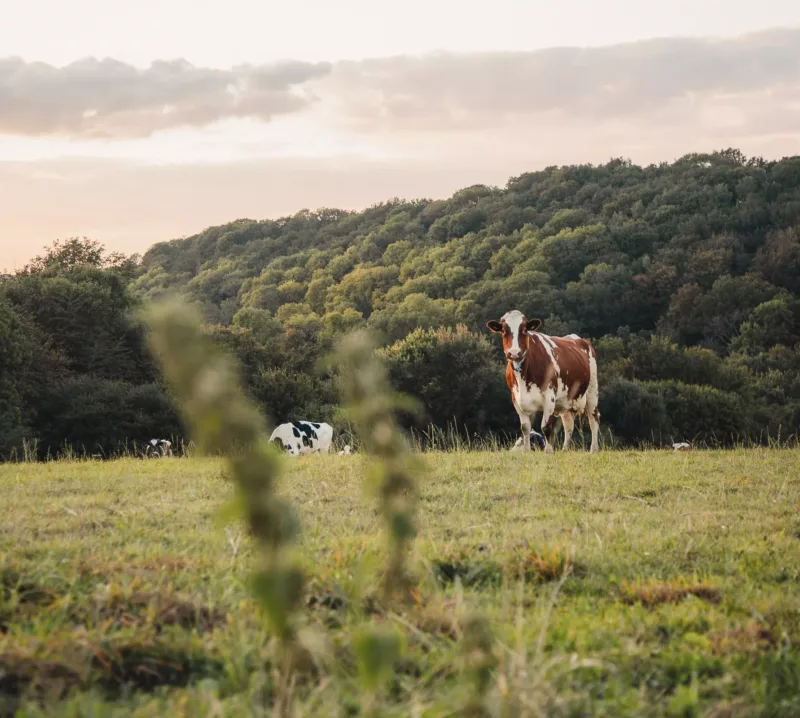
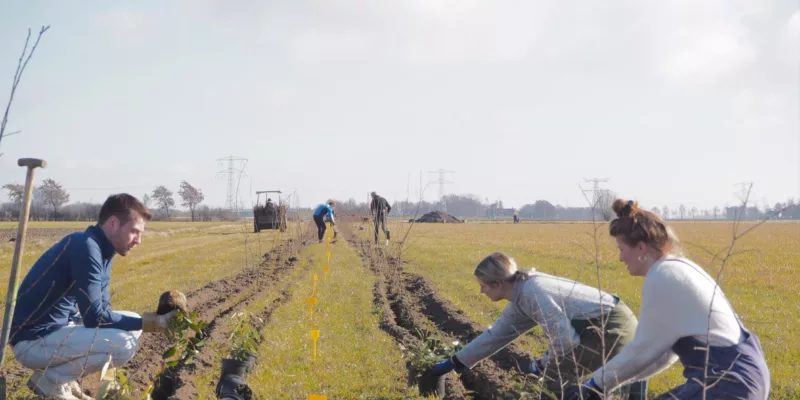
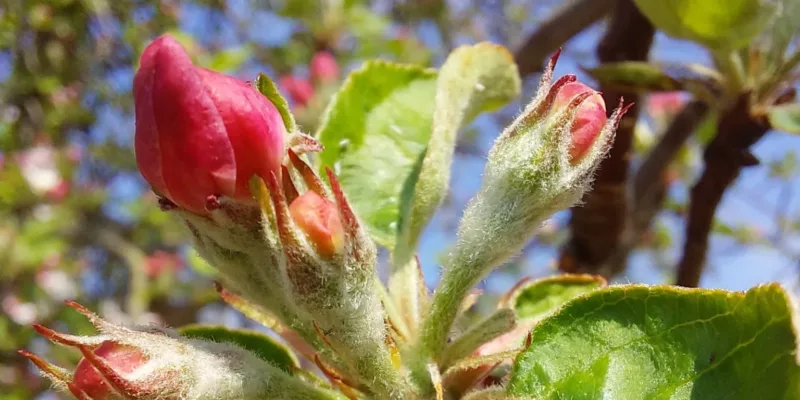
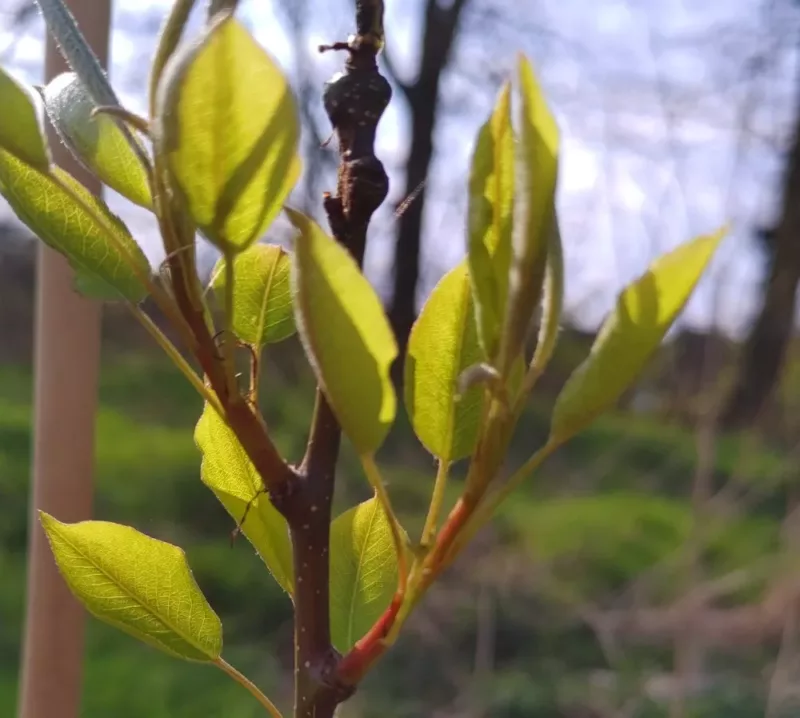
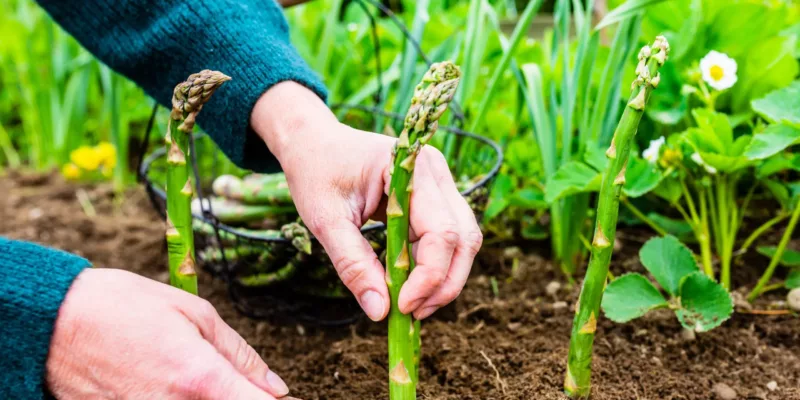
In the planting of food forests we co-operate with local food forest farmers and with Stichting Voedselbosbouw Nederland (Dutch Food Forestry Foundation). This foundation is aiming to realise at least 150 hectares of food forest in a sustainable manner before 2024.
Trees for All wants to contribute to these projects. In this way, we work together towards a better climate, more biodiversity and healthy living conditions for all.
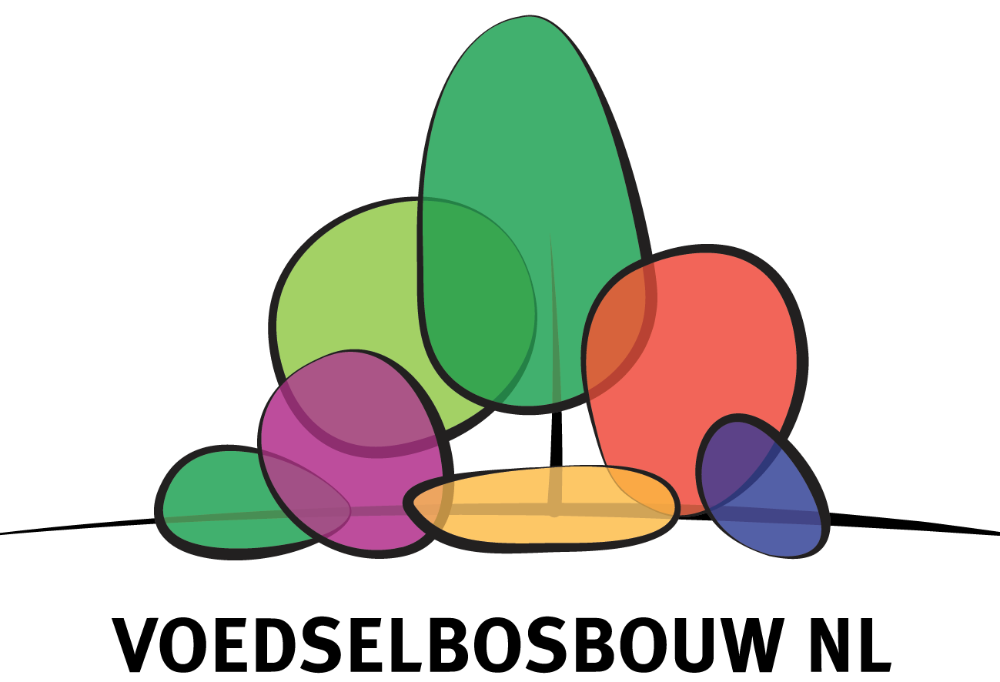
Our partner Stichting Voedselbosbouw Nederland created an informative video about food forests:
“The less management, the better. No more annual ploughing and sowing, no fertilisation and pest control. Nature runs the farm!”